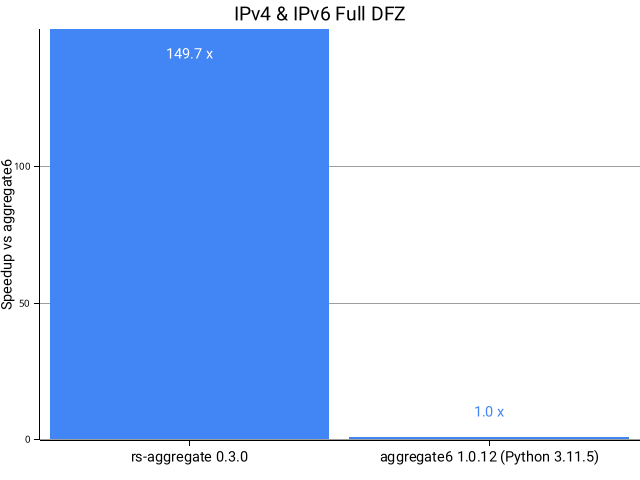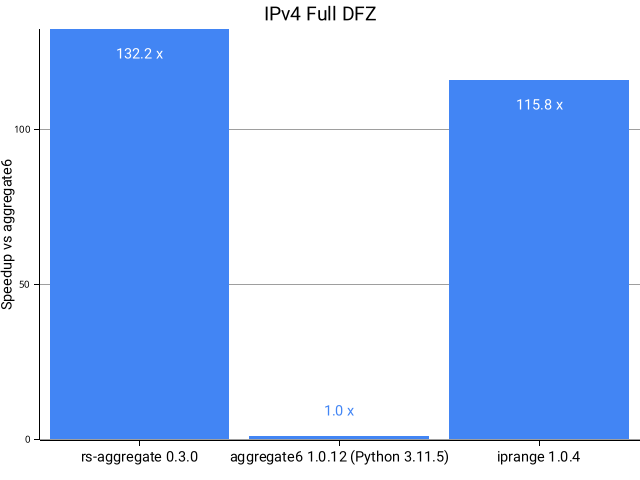mirror of
https://github.com/ktims/rs-aggregate.git
synced 2026-02-21 14:54:54 -08:00
948e30ce0015f5ad67bcadd2f84bd2986ee7b59d
rs-aggregate
rs-aggregate will aggregate an unsorted list of IP prefixes
Intended to be a drop-in replacement for aggregate6 with better performance.
Takes a list of whitespace-separated IPs or IP networks and aggregates them to their minimal representation.
Known discrepancies with aggregate6
rs-aggregateaccepts subnet and wilcard mask formats in addition to CIDR, ie all these are valid and equivalent:1.1.1.0/255.255.255.01.1.1.0/0.0.0.2551.1.1.0/24
-m/--max-prefixlensupports different maximums for each address family as ipv4,ipv6 format
Performance
Performance comparison of rs-aggregate vs aggregate6. A speedup of >100x is achieved on DFZ data.
Languages
Rust
100%

